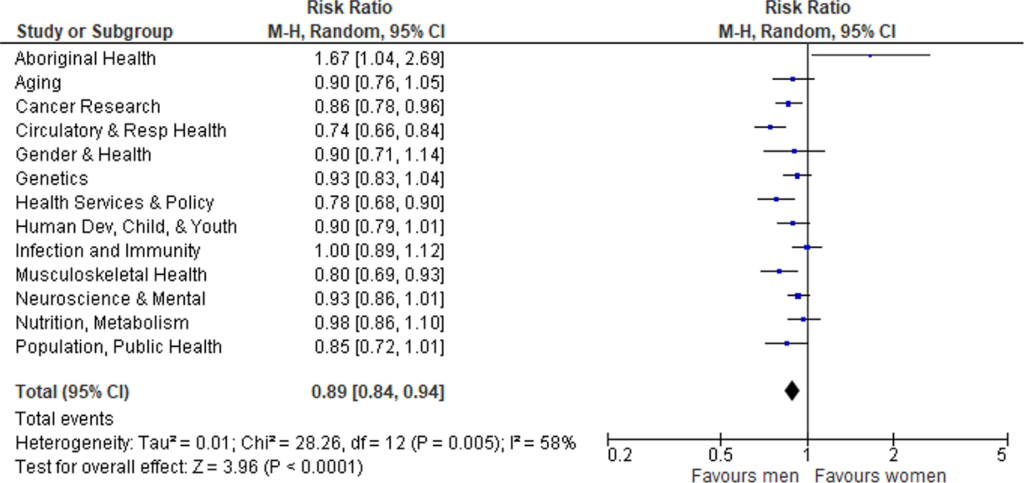Women less likely than men to receive research funding from some CIHR Institutes
Women are less likely than men to be awarded funding from the Canadian Institutes of Health Research (CIHR), according to a new study published in PLOS Medicine. The results are consistent with previous evidence that women are less likely than men to receive research funding in general—a factor that may help explain why women at all career stages are more likely to leave academia than men.
The new study went a step further, also showing that funding success rates for men and women differed between research domains. Women were significantly less likely than men to receive funding when their applications were directed to the Institutes of Cancer Research, Circulatory and Respiratory Health, Health Services and Policy Research, and Musculoskeletal Health and Arthritis. (Conversely, women who applied to the Institutes of Aboriginal People’s Health were more likely to receive funding than men.) These differences held true over time, even as funding success rates for both men and women decreased.
“Our work suggests that funding agencies should report grant and personnel award success rates by gender and by research content area,” said Karen Burns, a scientist at the Li Ka Shing Knowledge Institute, St. Michael's Hospital and associate professor of medicine at the University of Toronto, who led the study.
“Further research is needed to understand the factors that contributed to gender differences in funding success rates. For example, a previous study showed that women’s applications received similar ‘quality of the proposal research’ ratings [in peer review] but lower ‘assessment of investigator’ ratings compared to those of men.”
Burns and her colleagues retrospectively reviewed 55,700 grant and 4,087 personnel award applications submitted to CIHR over a 15-year period. The researchers did not have access to data about applicant or peer-reviewer demographics or experience level.
 Forest plot of gender differences in grant success rates by designated research institute. CI, confidence interval; M-H, Mantel Haenszel.
Forest plot of gender differences in grant success rates by designated research institute. CI, confidence interval; M-H, Mantel Haenszel. R$
| Organizations: | |
| People: | |
| Topics: |
Events For Leaders in
Science, Tech, Innovation, and Policy
Discuss and learn from those in the know at our virtual and in-person events.
See Upcoming Events
You have 0 free articles remaining.
Don't miss out - start your free trial today.
Start your FREE trial Already a member? Log in
By using this website, you agree to our use of cookies. We use cookies to provide you with a great experience and to help our website run effectively in accordance with our Privacy Policy and Terms of Service.





